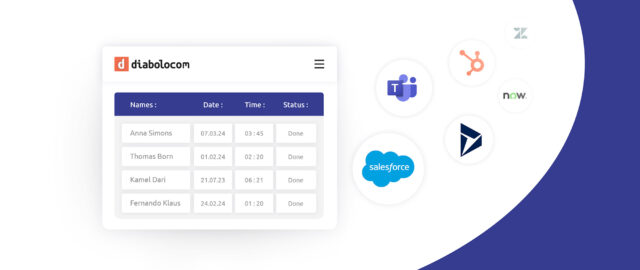An individualised approach
In this context, the coaching of call centre agents, contact centre agents and other customer relationship managers has become an increasingly important part of team managers’ schedules. This mission, which aims to help employees overcome any difficulties and to improve and enrich their professional practice, is added to their other tasks and responsibilities. While the process can take some time, this is because an effective coaching approach must be tailored to the individual.
Each agent has a different personality, with their own unique experiences and difficulties. Therefore, the team leader must adapt the time and level of support to the needs of each person. As all experienced coaches will tell you the role of the coach is not to provide ready-made solutions, but to:
- Help the trainee to identify and express difficulties
- Provide the tools for the agent to build their own solutions / answers
There is no need to be a great psychologist to understand that the part of coaching that requires the most attention is the first. Saying to an agent, “you tend to get upset in some situations” or “you do not appear to know how to do this or that”, is not as effective as getting the agent to say, “I find it difficult to keep calm when …” or, “I did not understand what to do when the customer asks for this or reacts like that … “. It goes without saying that an advisor will hardly say such a statement in front of his colleagues, even in a tightly knit team … It will be easier discussed one-on-one, provided that the agent feels confident with the manager who coaches them – and assuming that the latter listens and shows empathy and kindness. This may seem straightforward, but nonetheless these are the qualities expected of any manager …
Rely on the evidence
An attentive manager knows the strengths and weaknesses of each member of his team: seeing how they act on a daily basis, both with customers and their colleagues, he knows their state of mind and how they behave, he knows their reactions, their preferences, their capabilities, their aspirations, etc. Yet in order to establish a personalised support plan, the coach must be able to rely on and utilize objective factors. Agents’ work tools provide a wealth of statistics and indicators that provide a clear picture of each advisor’s performance and potential gaps. Double-listening sessions, replaying recordings or analysing e-mail or chat exchanges, as well as annual assessment interviews, all provide valuable insights which can determine the direction and intensity of coaching required.
For new hires, where there is a lack of operational data, the starting point may be the score obtained during the recruitment tests: this allows the team leader to know where the employee’s skills lie best, and the areas where they might need assistance. This can be anything from struggling with writing to taking client feedback personally or a low resistance to stress. “I dedicate a number of hours of coaching per month according to the notes from my agents,” explains this manager of a team of 15 advisers. “For some, 30 minutes are enough, while others will need 5 or 6 hours of coaching per month. The duration and purpose of coaching evolves over time. On the other hand, when I see that several agents are struggling with something – an argument, a procedure or something else – I organise workshops in addition to individual coaching. Training courses complete the system.”
It should be understood, in the preceding quote, that coaching does not replace at any time the training or evaluation interviews that mark the course of advisers. It is an element that complements the support system and, by helping advisors to develop their skills and to give their best and to develop professionally, enhances the quality of service received by customers. As such, coaching advisors is far from a fad: it’s an investment, and managers who practice it by the book will see that it is a very profitable investment.
Curious to know more about Diabolocom?




